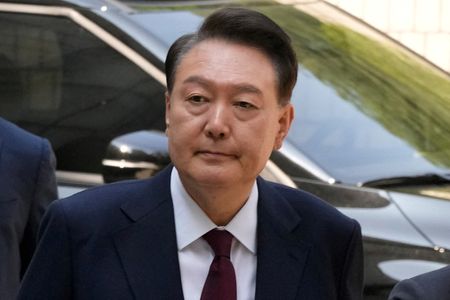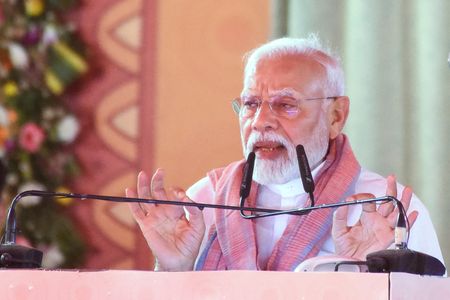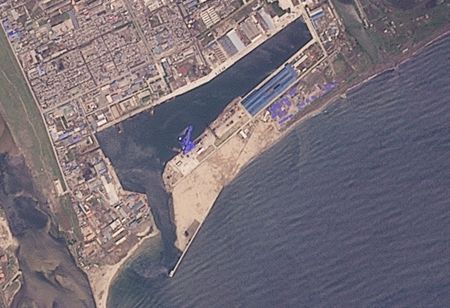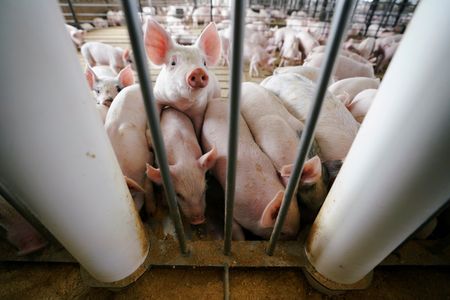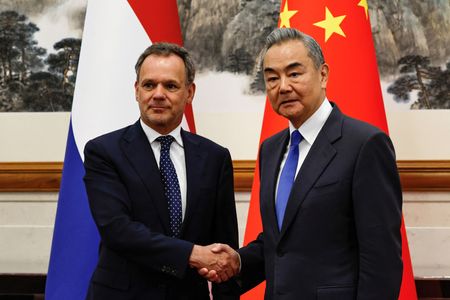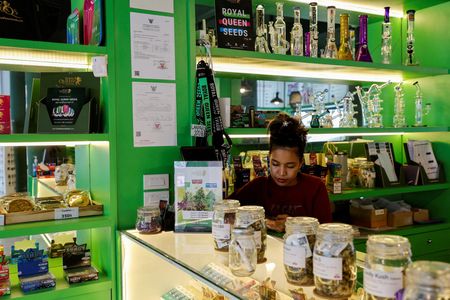By Jack Kim
SEOUL (Reuters) -Just three years after South Korea’s former President Yoon Suk Yeol moved the presidential office from the historic Blue House, his potential successors are vowing to move again, as they seek to escape the taint of his martial law attempt.
Yoon, stripped of office on April 4 over the bid that triggered a snap election on June 3, never set foot in the Blue House, having promised to abolish the “imperial presidency” that he said the old executive compound had come to embody.
His move to the defence ministry headquarters was estimated to have cost at least $40 million, with renovations still in progress when he was removed. Critics of the move have said the total cost could reach 1 trillion won ($721 million).
Yoon’s office denied that claim while saying indirect costs could take the total to 80 billion won. It has never released an official accounting.
“It is where a military coup was plotted,” Kim Min-seok, a Democratic Party lawmaker and a key ally of the presidential frontrunner Lee Jae-myung, said of Yoon’s new office.
Besides, it made little sense for the president to be in the same place as the military, he added.
Both Lee and Kim Moon-soo, the candidate of the conservative People Power Party, say they would need to initially move into the office after the June 4 inauguration for lack of a secure alternative, but plan to move as soon as possible afterwards.
Lee said his time spent there would be short, until the Blue House is ready for him to move back, before eventually taking the office permanently to Sejong, an administrative city hours away in the central region.
Kim has also said he would set up an office in Sejong “soon”.
Yoon could not immediately be reached for comment.
The proposal to move the seat of government and parliament to Sejong, 113 km (70 miles) from Seoul, is not new, and it is unclear if the latest plans will go further than previous attempts.
In 2003, then-President Roh Moo-hyun pushed ahead with his campaign pledge to move the capital in a plan to ensure regional balance by reversing the concentration of political and economic activity in Seoul.
But he was forced to scale back the plan a year later, when the Constitutional Court ruled the capital relocation plan unconstitutional. Government workers also proved reluctant to uproot their families from bustling Seoul.
Moving to Sejong would require passing a special law, which may need further review by the Constitutional Court, a process that would take a “tremendous amount of time”, said political commentator Kim Sang-jin.
“It is a long-term project at best for the new government,” said Kim, a former Blue House official.
‘NATIONAL CHARACTER’
After Yoon’s fall, his Yongsan office has become a place to avoid for presidential hopefuls, as an emblem both of his abuse of power and the affinity for shamans many suspect the former first couple to have.
Taking its name from a central crossroads at Yongsan in the capital, the office has become a symbol of a closed and domineering presidency that critics said deepened an already bitter social divide in an otherwise vibrant democracy.
For nearly two months from May 2022, Yoon worked from a temporary space in the defence ministry headquarters until his new office there was ready, at times receiving intelligence briefings in a secure basement bunker.
Some attributed the often haphazard decisions made there to advice from shamans the first couple was suspected to received, including even the office move to Yongsan.
Yoon consistently denied that the couple had any involvement with a shaman.
“Yongsan has become a symbol of bullheadedness and witchcraft,” Hong Joon-pyo, who was a presidential candidate for Yoon’s People Power Party, has said. “It is a question of national character.”
($1=1,386.7500 won)
(Reporting by Jack Kim; Editing by Josh Smith and Clarence Fernandez)

